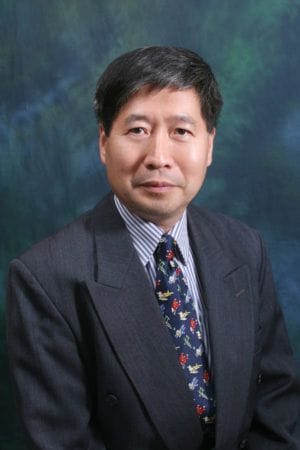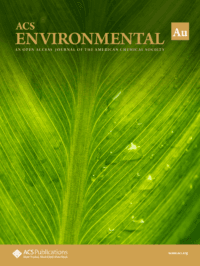In this interview, Professor Xiang-Dong Li, the journal's Deputy Editor, discusses what drew him to the field of environmental chemistry, the value of open science, and more.

ACS Environmental Au was launched in January 2021. This broad-scope open access journal provides environmental scientists with a high-quality outlet for their research if they want to publish open access or if their funder requires them to do so.
So, Xiang-Dong – what drew you to environmental science?

I did my first degree in earth science and my master’s degree in geochemistry. I had a number of field trips for my research projects. They made me realized mining and smelting operations presented many environmental issues. That inspired my interest in environmental science. When I had the opportunity to study in the U.K. for a Ph.D., I chose to join Professor Iain Thornton’s research group on environmental geochemistry at Imperial College London in the late 1980s. That was the beginning of my fascinating research journey on soil, sediment, and air pollution in the last 30+ years.
What were the biggest challenges for you in developing a research career?
In my early research career in Hong Kong, building an environmental chemistry laboratory in a civil engineering department was a challenge. I have been lucky to have the support of many colleagues at PolyU and other local institutions. To move from our traditional research on soil and sediment studies to the air and health field is another challenge for me in the last ten years. We enjoy expanding our research focus to new frontiers in air PM pollution, toxicity, and antimicrobial resistance.
Do you have any tips for aspiring researchers to help them develop their careers?
Asking important scientific questions in your field is critical. You need to build your expertise on the chosen topic. Inter-disciplinary research can be fun in many aspects. Building a research network is very helpful for your career development. Nurture your research team members (Ph.D. students and postdoctoral fellows) – help them to succeed!
What does open science mean for you as a researcher?
With the advance of scientific communications, open science will certainly help our global research community to build close collaborations across academic disciplines and geographic locations. This is especially true for many developing countries in Africa, Asia, and South America. Another vital advantage of open science is the provision of public access to quality science which ensures important information is available to the whole society so decisions can be made based on scientific knowledge.
As the Deputy Editor of ACS Environmental Au, what are you looking for in a paper?
We are looking for papers that address important environmental issues we are facing today. We welcome manuscripts covering many themes on global and regional scales. I value very much the novelty of the scientific approaches and its significance in solving real environmental problems. The journal is keen to publish high-quality papers of an interdisciplinary nature that integrates scientific and engineering applications.
Finally, if we could grant you one superpower: what would it be, and why?
I would like to have the superpower to travel back to the Earth 5000-10,000 years ago to see it as it was before human activities changed our planet.
